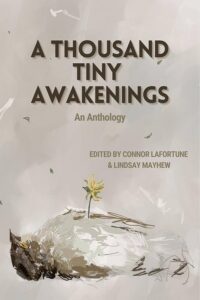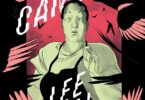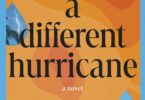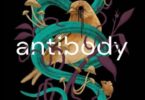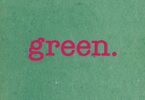Connor Lafortune and Lindsay Mayhew, eds., A Thousand Tiny Awakenings (Latitude 46 Publishing, 2025), 84 pp., $20.00.
The term “activist poetry” elicits an array of connotations and responses. For many activated by the world around them, the term is a pigeonhole—used by (often white) critics to suggest a diminished quality of work in favour of a political intention. But in a place where folks may be unfamiliar with words like “land” and “water protector,” and we agree on an activist wanting to impact the world positively, A Thousand Tiny Awakenings is an anthology of innovative activist poetry and storytelling. The anthology connects to self and communal advocacy—of such glorious variety in shapes, sizes, forms, devices and frank truth-telling—that is neither a pigeonhole nor diminished in quality for its many politically engaged messages.
How do we love each other through the apocalypse? How can we find strength to be there with one another? Toward what future are we heading, and how can we stop it? How will we find home? How do we respond to this sense of looming grief in climate change born from oppression and genocide? The space to even start piecing together potential answers to these questions begins, from my Dene worldview, with making certain that marginalized youth are included and uplifted. This anthology encapsulates that amplification of youth voices, still highly committing to rigour in communicating the answers, thanks to editors Lindsay Mayhew and Connor Lafortune—whether through poetry or prose.
The book’s piece of writing most impactful—in terms of altering how I view the world—is “to be a Tree” by award-winning non-binary poet Blaine Thornton. It begins: “If I concentrate hard enough, I can make the trees breathe,” opening us to the creative space of the poem with a freshness I am already excited to unravel. The poem asks us to consider if, in being a tree, one might one day, as punishment for existing, be felled by an axe, or, for growing to a certain height, be struck by lightning.
It’s this line, though, that turned me inside out: “I suppose it would be interesting to be a City tree, to watch a City be built around me.” The poem continues to deliver, not only using line-breaks and spacing to twist a prose poem into something new, but intentional page-breaks as well. The single word “space,” centred vertically and horizontally on a fresh page, carried a certain aesthetic contrast with the busy-ness of the previous pages, visible underneath the white space surrounding the word.
Countless poems here feature innovative usage of formatting, playing on what we consider a poem—this area, explored so heavily in activist poetry, is highly integral to the strength of the messages. These aren’t, however, stuffy academic poems attempting to confuse or obscure the reader. Intentionality is transparent in how attention is drawn through capitalization of the pattern of certain words, as in “Heterodoxy” by Sydney Read, which breaks allegory to explore identity, home, and the “Space / Between.” Editor Lafortune hits us with “Indians in the Making,” which feels like an “in this essay, I will,” type of prose poem, with strong attention to the shapes of paragraphs, exploring the poetics of bureaucracy.
Spoken word and page poetry are not different creatures entirely. Many of those published here are renowned spoken-word artists, such as Kay Kassirer. I’ve had the pleasure of hearing different versions of their “Schrödinger’s Casket,” which always swung hard in the spoken voice—it still pops and surprises to read it in verse in these pages. 2023’s Canadian Individual Poetry Slam runner-up, Lisa Shen, shares “i am living by the minute,” which displays how the breathy, run-on sentence key to the oral rendition of a poem can easily guide us through relatable images of liminal and existential dread. And of course co-editor Mayhew, a Canadian Individual Poetry Slam finalist who I witnessed while hosting the competition myself, breaks us apart in “Meteor Fragmenting,” through the particularly effective pairing of anaphora with creative uses of white space, keeping the eye interested in the repetition.
Then there are the more traditional short stories. Given how sparsely some of the fiction is placed among the poems, I did find the composition left me confused—sometimes delightfully—as to whether I was reading a poem or a short story. When the smoke cleared and I placed myself into “Home” by Brennan Gregoire, I was drawn in by the honest-feeling frank storytelling of relatable grief over lost loved ones and their lasting impact. I related most to the questioning and the constant awareness present for a white-passing Indigenous person navigating colonialism—especially in a moment as historically potent as the uncovering of tens of thousands of Indigenous children in mass graves. And I appreciate that it was not over-spoken, just a calm fact of the timeframe, of the experience for the main character.
Images and metaphors of fire are not uncommon. In a time rife with forest fires across Turtle Island and bombs falling on Palestine, the anthology’s final three poems separate the fires from the fascism: “The Dragon” by Ra’anaa Yaminah Ekundayo has great command of sound devices, quickly embodying an internal landscape of how the fire can free, especially for the speaker as the dragon, to “burn out their deception / as I speak.” Then, “Firestorm” by Michelle Delorme takes the concrete form, resembling a fiery tornado in all its havoc and despair, to proclaim the “Climate Change Pyrocumulonimbus,” capitalized as though it were official—only to turn in the end, bringing our attention to the forest that will grow back through the ashes. Closing, our editors, Lafortune and Mayhew co-author, “In the Aftermath of the Apocalypse”:
What is future if not empire
…………………………..being burnt downI am flesh on fire
After building up trust throughout the book, they ask sincerely: “What is future if not empire / being burnt down”? The use of formatting to effectively drop the answer draws us to the conclusion, moving back into “I am flesh on fire”—a proclamation of the speaker as the future being burnt down.
I trust poetry—and, by extension, storytelling—to be what will guide us out of this apocalypse. A Thousand Tiny Awakenings could be considered a manual for both what we have been doing, and what must change now. And while I often encourage storytelling regardless of skill level, the rigour of the storytellers and poets in anthologies like this pushes all poetry forward. We are witnessing the messengers evolving with their messages.
 Tawahum Bige is a Łutselkʼe Dene, Métis and Nehiyaw spoken-word poet from unceded Musqueam, Squamish & Tsleil-Waututh Territory (CKA Vancouver). Their Two-Spirit, Nonbinary Scorpio-moon angst boils over to showcase their sadboi rage. Having opened for Kimmortal and Vivek Shraya and with a BA in Creative Writing from Kwantlen Polytechnic University, Tawahum has performed poetry and hip-hop at countless festivals with poems featured in numerous publications. His land protection work versus Trans Mountain pipeline expansion had him face incarceration in 2020. Cut to Fortress was published by Nightwood Editions in 2022, with their new collection, Stages of Tanning Words and Remembering Spells arriving April 2025. Find them online @Tawahum on social-media platforms.
Tawahum Bige is a Łutselkʼe Dene, Métis and Nehiyaw spoken-word poet from unceded Musqueam, Squamish & Tsleil-Waututh Territory (CKA Vancouver). Their Two-Spirit, Nonbinary Scorpio-moon angst boils over to showcase their sadboi rage. Having opened for Kimmortal and Vivek Shraya and with a BA in Creative Writing from Kwantlen Polytechnic University, Tawahum has performed poetry and hip-hop at countless festivals with poems featured in numerous publications. His land protection work versus Trans Mountain pipeline expansion had him face incarceration in 2020. Cut to Fortress was published by Nightwood Editions in 2022, with their new collection, Stages of Tanning Words and Remembering Spells arriving April 2025. Find them online @Tawahum on social-media platforms.

